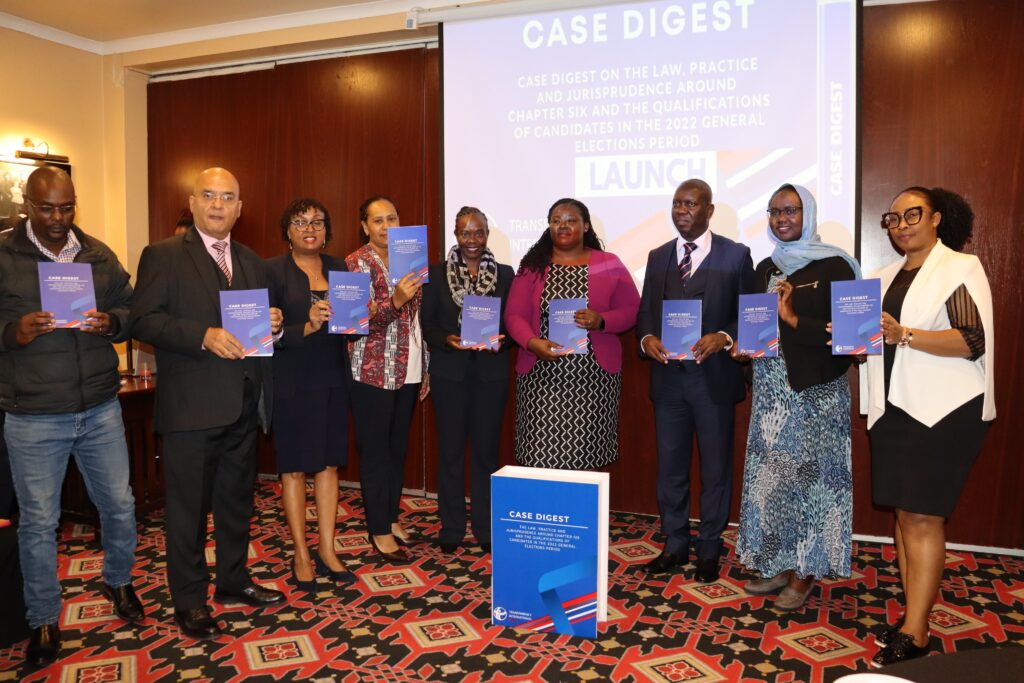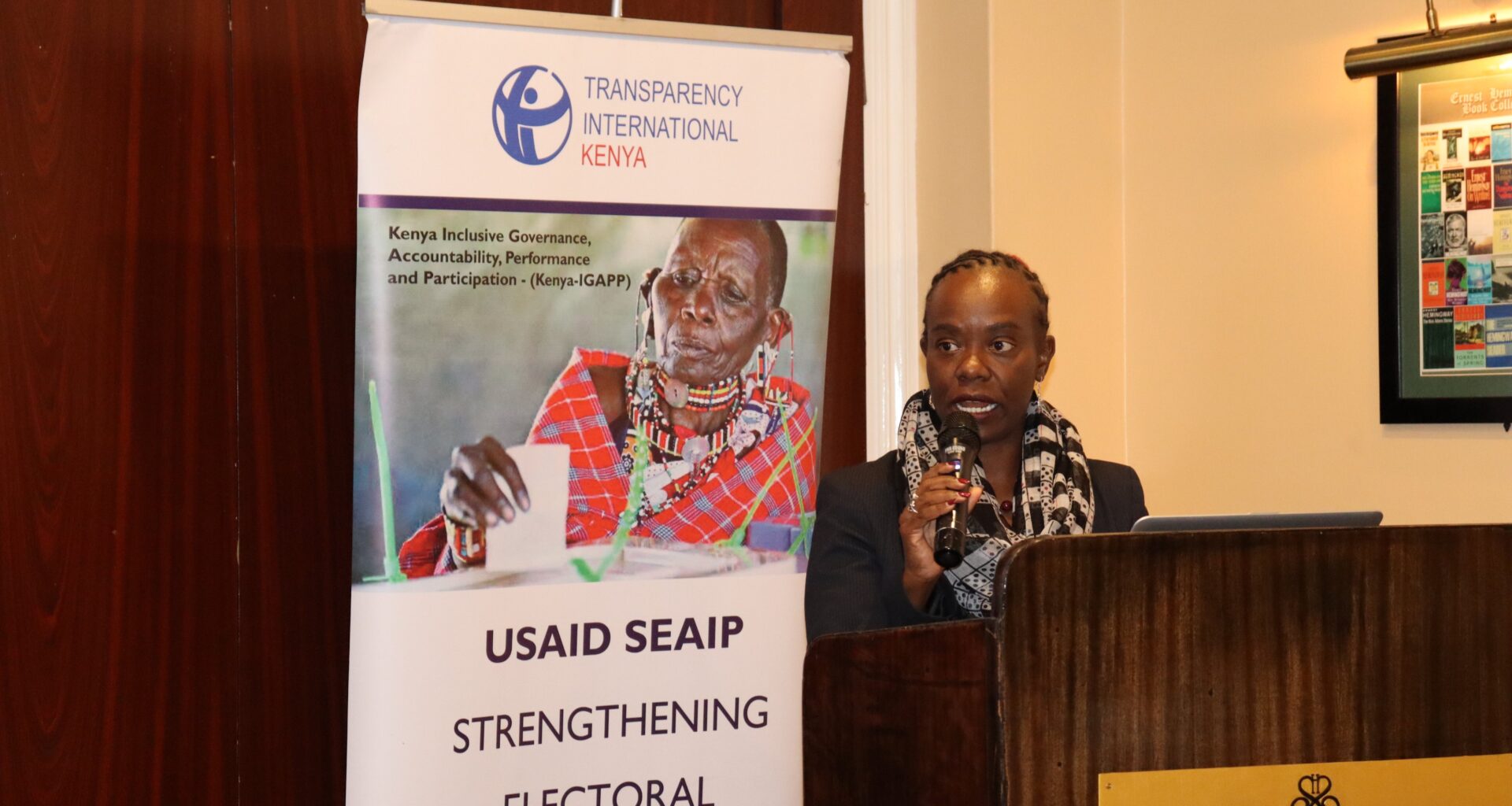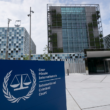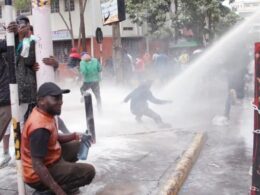NAIROBI, Kenya, – ICJ Kenya has been actively involved in Election preparation through engagement with the Judiciary, through the Kenya Judiciary Academy and the Judiciary Committee on Elections.
To this effect, ICJ Kenya has developed Compendiums on the decided cases to track the Jurisprudence emanating from the Courts. It is for this reason that we lauded Transparency International for the development of a case digest on Chapter Six as this will enable the public, judges and judicial officers, academia, and civil society to appreciate the developments in the arena.
It is important to highlight that with each election the jurisprudence on particular issues is sharpened and the decisions from the 2022 election if not challenged are the guiding principles ahead of the 2027 election. It is therefore important that we as civil society leave no stone unturned as we unpack these lessons.
Importance of Chapter Six: Leadership and Integrity in Public Office
Some parts of the 2010 Constitution have inspired Kenyans more than others, particularly Article 1 (sovereignty of the people), Article 10 (values and principles), Chapter Four (the Bill of Rights) and Chapter Six- Leadership and Integrity, and the enthusiasm for it is an indicator of how far Kenyans have felt deprived of leaders with integrity.
In the recent past, there have even been discussions on setting up an NGO called “Chapter Six”. The necessity of integrity is emphasized daily as news after news breaks about corruption among “leaders” at both National and County levels.
The Chapter is a guide to the leadership and integrity norms that a public and state officer ought to espouse. This includes Responsibilities of leadership, Oath of office for State officers, Conduct of State Officers, Financial integrity of State Officers, and Restrictions on activities of State Officers.
This goes hand in hand with the Principles Outlined in Chapter Six, including, Integrity, Objectivity and impartiality, Accountability, Transparency, Fairness and equity, Competence and merit, Responsiveness, and the Rule of law.
Judicial Interpretation: Exploration of how the judiciary interprets the principles in Chapter Six
The threshold for criminal cases i.e. murder or forgery, is typically set at a level of proof beyond all reasonable doubt. Similarly, in corruption and cases involving economic crimes, the standard of proof generally rests on the premise of being beyond all reasonable doubts, with any uncertainties typically being resolved by the Court in favor of the accused individuals.
There is a recognized need to reduce the standard of proof for cases related to the implementation of Chapter 6 to align with that of civil cases, which is based on a balance of probabilities. Such an adjustment would facilitate the realization of the significant potential that Chapter 6 of the Constitution and the Leadership and Integrity Act holds in terms of the integrity requirements for electoral candidates and leaders in general.

Examination of Landmark Issues related to Leadership and Integrity
Education Qualifications
The matter of academic qualifications met its demise in the just concluded 2022 general elections election. Courts, both in reported decisions and unreported petitions, deemed Section 22 of the Elections Act unconstitutional, asserting that this section violated other rights enshrined in the Bill of Rights. This essentially implies that individuals vying for elective positions, including Governors, Senators, Members of Parliament, and Members of the County Assembly, are no longer obligated to possess a degree.
Hon. Kipchumba Murkomen proposed a bill to amend Section 22 of the Elections Act, eliminating the degree requirement for Members of Parliament. Unfortunately, this has become the legal position after its adoption.
The Courts have also failed to definitively rule on cases involving individuals presenting counterfeit certificates. Numerous cases have been lingering for an extended period, extending beyond elections, consequently enabling offenders to run for various seats.
Contrary, the Independent Electoral and Boundaries Commission (IEBC) has contended in court that it lacks the authority to verify educational documents submitted to it. This underscores the necessity of establishing a Chapter 6 Working Group to assist in the verification and authentication of documents submitted to IEBC for clearance.
Furthermore, it emphasizes the need for relevant state agencies to collaborate and develop a unified position or strategy in addressing pertinent lawsuits.
Role of the Judiciary in Upholding Constitutional Standards in Leadership and Integrity
The judiciary interprets and clarifies the provisions related to leadership and integrity as outlined in the Constitution. This involves providing legal definitions and meanings to ensure a clear understanding of the standards expected of public officeholders. It also reviews laws and policies to ensure they align with constitutional standards. If any legislation undermines the principles of leadership and integrity, the judiciary can declare such laws unconstitutional.
The judiciary acts as a check on the other branches of government, preventing the abuse of power by public officials. Through legal reviews and interventions, the judiciary ensures that those in leadership positions adhere to the highest standards of integrity.
The Judiciary is also responsible for setting Precedents that eventually guide future cases and help establish a consistent framework for interpreting and applying constitutional standards.
Other roles include scrutinizing appointments of individuals to key positions in public office and clarifying ambiguous provisions to assist in avoiding misinterpretations further ensuring a uniform understanding of the constitutional standards.
In essence, the judiciary acts as a guardian of the constitutional principles of leadership and integrity, ensuring that those in public office adhere to the highest ethical standards and promoting the rule of law.
Several challenges have been cited to be affecting the implementation of Chapter Six including a lengthy appellate process in Kenyan courts which candidates have used to participate in elections and circumvent accountability standards.
The disregard of court rulings by the executive and legislature and the lack of a comprehensive mechanism for determining compliance with Chapter Six have also affected the implementation process.
In light of these challenges, it is important that collaboration between the Judiciary, Executive, and Oversight Bodies are strengthened, and increased public participation efforts and opportunities should be explored at the Kenya Judiciary Academy to highlight the challenges of the inconsistent jurisprudence and what best practice scenarios would look like on interpretation of Chapter 6.
The interpretation of the Chapter has also failed to apply the morality test whereby it is not just a question of law but a a question of morality and integrity. A person who is indicted for a grave offense that would potentially undermine the office that the person is appointed to ought not to be appointed or elected.
The letter of the law and the spirit of the law have to be harmonized. The cases of Hon. Didmus Barasa and Hon. Babu Owino for instance cast aspersions on the strength of Chapter Six.
There is also a need for the Red Card campaign out to be amplified and strengthened and more stakeholders including IEBC, ORPP, and EACC involved significantly to be appraised of the findings of CSOs.
The Judiciary ought to create strict timeliness on the election disputes appertaining qualifications of candidates to allow for appellate processes and conclusive determination of the disputes.
Civil Society Organizations (CSOs) should pick amendment Bills that had been fronted in the 12th House which lapsed but have been approved for reintroduction, specifically the Leadership and Integrity Amendment Bill, 2021, and the Anti-Corruption and Economic Crimes Amendment Bill, 2020 to fix the gaps that have been exploited by politicians to escape the glare of Chapter 6.
Radically, CSOs need to put together a Constitutional Petition to the Constitutional Court that would be escalated to the Supreme Court to give proper direction on the implementation of Chapter Six.











